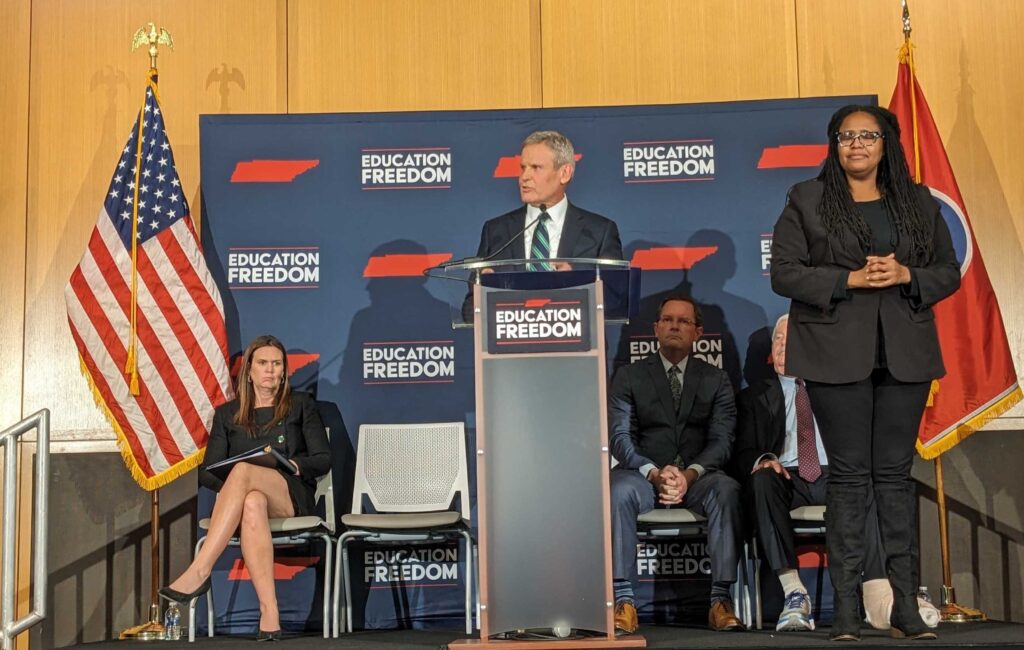
Gov. Bill Lee’s proposal to expand school vouchers statewide would offer $7,075 in state funds per participant to pay for the costs of attending private school. A new report from the Education Trust in Tennessee finds that amount is more than the state is spending on public school students in more than one-third of districts.
For example, the voucher money is projected to exceed the state’s per-student spending in Metro Nashville and Williamson County Schools by more than $2,000.
“And this really demonstrates an opportunity cost, that there’s additional money for districts that’s being allocated towards vouchers,” said Breanna Sommers. She authored the report and serves as senior policy analyst for The Education Trust in Tennessee. “And I’m particularly thinking about inflation costs after Covid. I’m thinking about needing to hire teachers and bus drivers, particularly in our rural communities.”
If the proposal passes, it could cost more than $140 million in its first year alone. Sommers said that kind of money could pay for more than 2,600 teacher salaries.
Digging deeper into the numbers
The analysis used projected figures from Tennessee’s school funding formula, TISA, for the current school year. While the formula requires base funding of $6,860 per student, the state doesn’t cover all of that. A portion of the money comes from local tax dollars. But local contributions vary widely depending on how much revenue the formula estimates an area can generate.
On the whole, research about the efficacy of voucher programs is mixed, however. This report highlights that most recent studies have found “mostly negative or insignificant impacts on academic outcome.” A 2022 analysis from Indiana University of more than a dozen studies on voucher programs found that large programs were associated with especially poor outcomes. “As programs grew in size, the results turned negative, often to a remarkably large degree virtually unrivaled in education research.”
Tennessee’s Education Savings Account pilot program is relatively small, but preliminary data on student achievement is not promising.
In 2023, only 11.3% of program participants scored proficient on the math section of TCAP, compared to 33.7% of public school students. Similarly in English language arts, 22.8% of ESA recipients scored proficient, while 38% of public school students hit the benchmark.
However, proponents of vouchers point to a high parent satisfaction rate. Nationally, private school parents tend to be most satisfied with their children’s schools.

